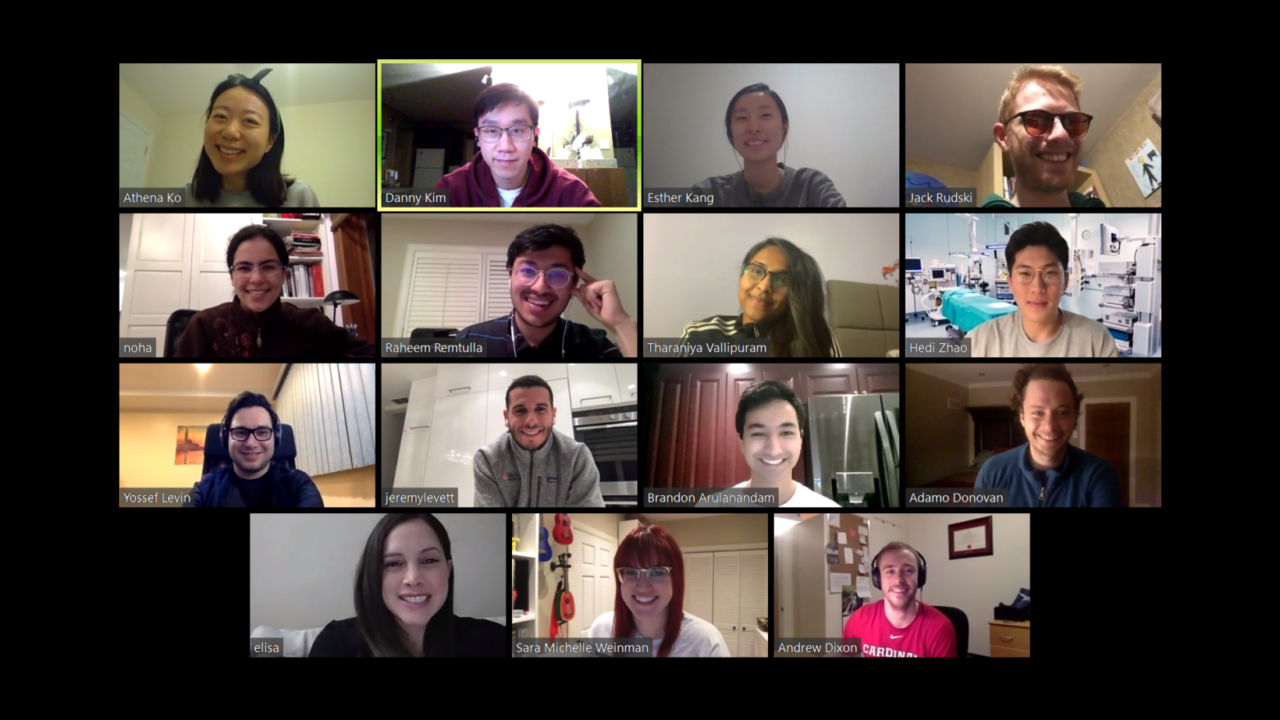
“It started off with showing a physician how to recover accidentally deleted texts by pressing “Command + Z”,” says Danny Kim, a second-year medical student at McGill University’s Faculty of Medicine of the initiative he launched to help health care professionals needing to abruptly adapt to using digital technology for their work.
With the onset of the COVID-19 pandemic, the McGill University Health Centre (MUHC) quickly shifted to telehealth as a means of delivering health care in a timely manner. The changes include accessing hospital charts remotely from home, setting up video platforms such as Zoom, and collecting necessary medical data digitally. Due to the sudden changes, several clinicians found themselves lost in navigating these systems. Simultaneously, all clinical teaching at McGill Medicine was effectively shut down. The students, with more time on their hands, were looking for ways to help support the frontline health care workers. Helping clinicians having difficulty with technology proved to be a perfect opportunity, while respecting social distancing.
“I was never really a big technology person, at least relative to others in my generation,” explains Danny. “However, growing up in a digital world, some of the functions and skillsets my generation takes for granted proved to be very novel to other generations.”
What started as a one-person job, has now expanded into the McGill Medicine Telehealth group, in response to the growing needs caused by the pandemic. Since it’s inception, the group has helped more than 20 health care professionals in all matters of technology. Faculty members send requests to the group by e-mail and are then connected to a medical student volunteer via phone or Zoom. If a solution is not easily found, the team discusses and finds a solution together to reply back to the Faculty member. The McGill Medicine Telehealth team works closely in conjunction with the MUHC and the Jewish General Hospital (JGH) Telehealth IT departments. Both hospitals have now asked the McGill Medicine Telehealth team to expand technical supports to patients. Additionally, with many other great student initiatives, such as the COVID-19 Student Support Initiative, the team has been collaborating to refer requests to one another.
“In these unprecedented times to adapt hospital capacity, limit community spread, preserve our workforce and maintain ongoing care to our patients, we need to rapidly adapt to working virtually,” says Dr. Michael Shevell, Chair of the Department of Pediatrics at McGill’s Faculty of Medicine. “We are fortunate to live in an era where technology enables this, however many of those who remember the curled paper coming out of a fax machine with wonder have been reluctant to take that first step and adopt technological advances. Boomers have to become Zoomers and this initiative enables this in a friendly constructive way across generations.”
Jeremy Levett, a first-year McGill medical student, has been the at the forefront of expanding the initiative to the JGH. With each hospital, the needs are different, and the team adapts. Moreover, there has been growing interest in continuing telehealth beyond COVID-19. To assess telehealth satisfaction and feasibility for post-pandemic use, Noha Elsherbini, a second-year McGill medical student, has initiated a MUHC quality improvement project to survey the hospital staff.
“We are thankful to the MUHC for providing us with a Zoom Telehealth Pro license to better help our clinicians and patients,” says Danny. “We also welcome and accept requests from instructors across the Faculty of Medicine’s schools who may be in need of support as they adapt to the realities of remote teaching.”
To reach out to the group, or request support, write to: telehealth.mcgillmed@gmail.com
April 3, 2020
